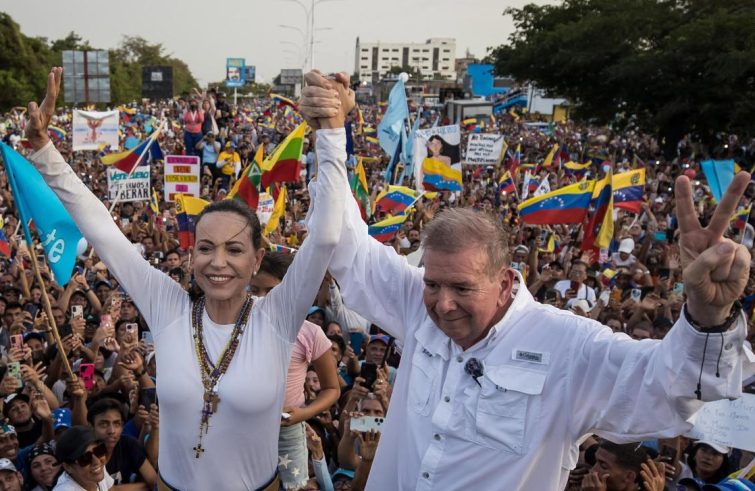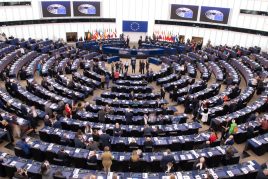
What are the lessons to be learned from the awarding of the Sakharov Prize – on Tuesday 17 December in Strasbourg – to the leaders of the democratic opposition in Venezuela? For more than 30 years, the European Parliament has awarded this prize in recognition of outstanding contributions to the defence of freedom of thought, human rights and democracy throughout the world. This year, the prize was awarded to President-elect Edmundo González Urrutia (who is not in office, having been ousted by the dictator Maduro) and to respected opposition leader María Corina Machado.
The latter, in particular, deserves credit for a speech – delivered remotely – at the plenary session of the European Parliament that shook consciences, a testimony to unwavering lucidity and courage (given that her life, like that of Urrutia and that of the leaders of the opposition to the regime, is at risk every day).
With the awarding of the Sakharov Prize, “today you acknowledge the tireless struggle for freedom and democracy of millions of Venezuelans inside and outside our country for more than 25 years,” she said.
After years of systematic aggression by one of the most destructive regimes on the planet, the Venezuelan people have given countless testimonies of courage, intelligence, resilience and love. Love for our children, for our country and for our freedom.” Love is the key word.

Machado described the extreme, widespread poverty of a country rich in oil and natural resources. He mentioned the arbitrary arrests, the pressure on the people, the systematic “preaching of hate” and the isolation of the country. However, liberation is taking place “from the grassroots level.” On 28 July, the electorate voted for Urrutia, although dictator Maduro refused to step down. What remains is the miracle of the eruption of freedom, of indomitable dignity.
A divided and oppressed people is fighting for its future. “They tried to set us against each other… They tried to undermine and weaken the family, the heart of society… They also tried to destroy all democratic institutions.” Venezuela fought back.
“Against all odds, this divided society decided to unite and rise from the ashes. In the face of pain, with nobility and dignity, and in strict adherence to the truth that dispelled the lies, a real movement for the unity and liberation of our people was born.”
“That is why what is happening in Venezuela today transcends our generation and our borders. The global repercussions of this struggle” show “what a severely battered society can achieve when it decides, swimming against the tide and overcoming obstacles, to move forward together on the path of all that is good.” In this lies a universal message that can apply to Latin America and to many African countries, to countries in the Middle East, and to all those areas of the planet where injustice, repression, violence, hunger and new forms of colonialism call forth the peoples to their liberation.
More than half of the world’s people live today in poverty, oppression and in chains. But the chains can be broken.












